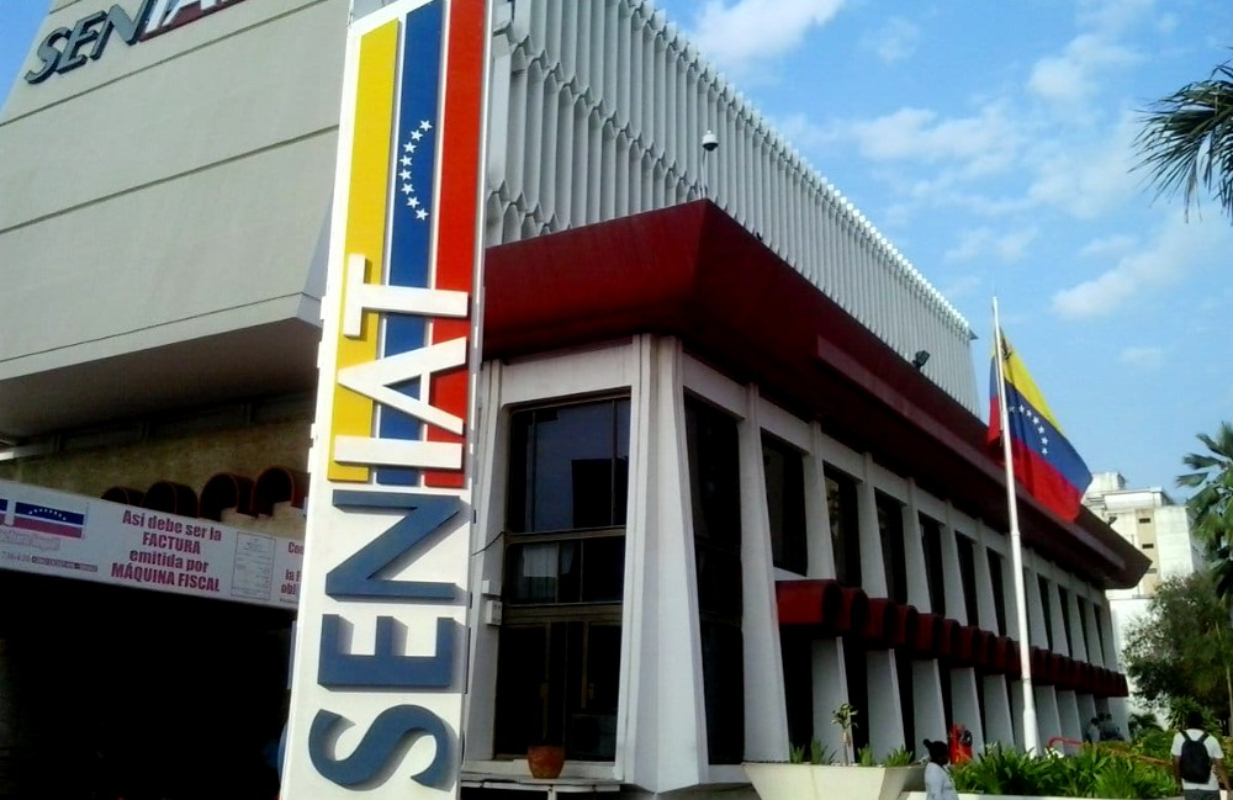
Office of the national tax authority of Venezuela, SENIAT. Photo: Radio Miraflores/File photo.

Orinoco Tribune – News and opinion pieces about Venezuela and beyond
From Venezuela and made by Venezuelan Chavistas

Office of the national tax authority of Venezuela, SENIAT. Photo: Radio Miraflores/File photo.
Venezuelan National Assembly approved 25 articles out of 30 of the draft Organic Law for the Coordination and Harmonization of the Tax Powers of the States and Municipalities, on Friday, July 14. The chairman of the Permanent Commission of Economy, Finance and National Development, PSUV Deputy Jesús Faría, stated that this law “will serve as a support to move towards a new tax system for a post-oil Venezuela.”
He explained that the preparation of the new law is “an absolutely urgent requirement for the whole nation; we must do everything in our power to stimulate the recovery of the country’s productive apparatus.”
He added that the new law will have “the fundamental purpose of creating order where there were signs of anarchy,” referring to a number of local and regional taxes or similar regulations that were enacted in recent years, which have created what the business sector calls tax voracity.
Deputy Faría also highlighted that due to “the terrible economic aggression that we have suffered, the income of local and regional governments was decimated, which created conditions that generated a number of tax rules that excessively increased the burden on the different sectors of the Venezuelan economy.”
“We are talking about workers, consumers, companies, etc., and this has an impact on various issues affecting the country that these local and regional governments have to deal with,” the deputy explained.
Venezuela’s Tax Revenue Grows 93% During January – November 2022
Faría explained that the harmonization of the tax structure originates from the need to dynamize the country’s economy, and to create conditions for a tax justice where those with higher income pay higher taxes and thus contribute a greater amount towards national development as a whole, which is not being fulfilled by the existing tax system.
He stressed that with the new law “we do not want to strangle anyone, we do not want to reach extreme conditions in terms of tax revenues in any municipality, in any regional government. We want to avoid excesses in tax matters.”
Many Chavista analysts are vigilant of the tax situation that also includes import duties and protectionist measures, demanded by business sectors that mostly only care about keeping exorbitant profits without taking into consideration the needs of the people.
(Últimas Noticias) with Orinoco Tribune content
Translation: Orinoco Tribune
OT/JRE/SC